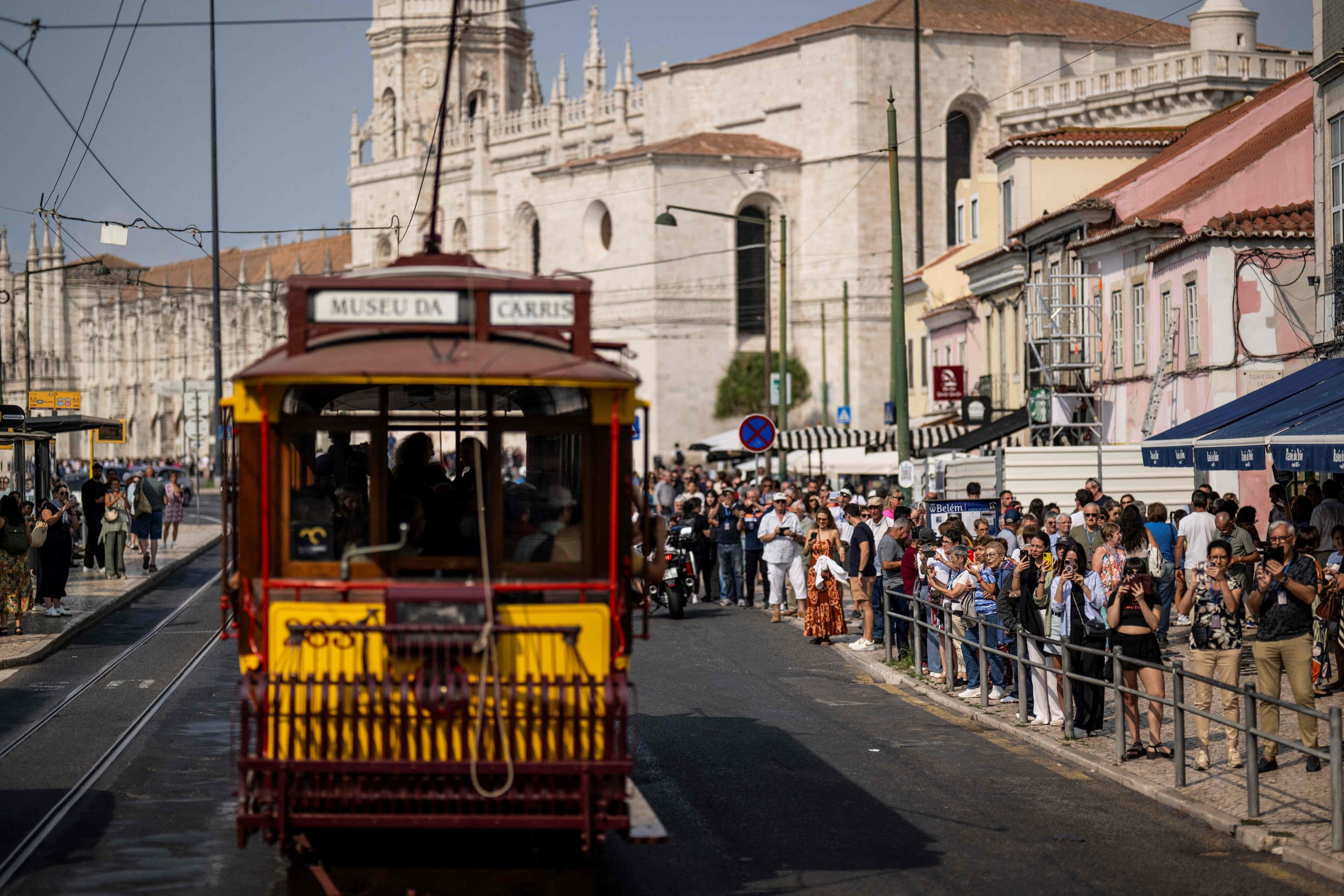An age-old symbol of the Portuguese capital, Lisbon's rickety yellow trams have become such a magnet for tourists that some locals complain they can no longer grab a ride. Lisbon began operating trams in the late 19th century to transport passengers up the steep and narrow streets criss-crossing the hilly old city. Today's visitors travel back in time admiring the wooden flooring and old-fashioned appearance of carriages that offer spectacular views of the Tagus River and picturesque pastel-colored buildings.
But as visitors flock to the capital in larger numbers – almost 9 million in 2023 – some residents are growing exasperated with the effects of mass tourism. "The tram? It's not for us anymore, it's reserved for tourists!" said Luisa Costa, a resident of the working-class neighbourhood of Mouraria who is in her 60s. With foreign visitors cramming the carriages, Costa now waits at a stop for electric minibuses put on by the Lisbon transport company Carris for residents who take the same route.
At Martim Moniz Square in central Lisbon, passengers sometimes queue for more than an hour at a tram stop on line 28, the most popular route, which winds through the most photogenic spots. Red trams aimed at tourists have also been created but are less popular due to their higher costs. Other tram lines have been put back into service after being scrapped during the 20th century with the development of the urban bus network.
Despite the measures, "the situation keeps getting wors.



















